- About
About
Read about our values and the heart of Altitude in our About Altitude page or why not learn more about us in our team page? Our Verbier page has everything you need to know about the resort and what to do nearby.- Camps
Our Camps
We offer residential camps for 7-14 year olds as well as day camps for 3-14 year olds. For families, we offer accommodation options as well as bespoke family holiday itineraries.- Residential Camps
- Day Camps
- Activities & Excursions
- Family Adventures
- Accommodation
Accommodation
Our camps foster a home away from home feeling for children with everything they need for a safe and comfortable stay. For families, we have suitable properties for all requirements.Discover summer camps in Europe
Summer camps are a fantastic way for children and teenagers to spend the long summer holidays and provide a supervised programme away from home. Campers can learn new skills as well as building resilience, self-sufficiency and independence. It’s time to discover what summer camps in Europe are about! For over a century, summer camps have been a big part of summer culture in the United States, and in recent decades summer camps in Europe have become increasingly popular too, with more parents and children enjoying the huge benefits a summer at camp can provide.What Makes A Good Summer Camp?
 There are so many summer camps in Europe to choose from, it can be hard to know which are the best camps, and to make a decision on where to send your child or teenager. You might be sending your child to camp for the first time, looking to send them to a different camp to have a new experience, or they may have outgrown their old camp.
Trust
If you are looking at a residential or overnight camp abroad, you may not even visit the country the camp is in, let alone the camp itself, so you want to have a great deal of trust that your child is in good hands. This starts from the booking process; make sure you’re able to ask any questions you have and feel reassured that you have good communication with the camp.
Activities
There are so many summer camps in Europe to choose from, it can be hard to know which are the best camps, and to make a decision on where to send your child or teenager. You might be sending your child to camp for the first time, looking to send them to a different camp to have a new experience, or they may have outgrown their old camp.
Trust
If you are looking at a residential or overnight camp abroad, you may not even visit the country the camp is in, let alone the camp itself, so you want to have a great deal of trust that your child is in good hands. This starts from the booking process; make sure you’re able to ask any questions you have and feel reassured that you have good communication with the camp.
Activities
 Take a look at what activities the camp offers, how these are structured and if there is a range that appeals to your child. The idea of most camps is that children will learn new skills from the activities and try something different, so it doesn’t always have to be things they’ve done before! Unless you’re looking specifically for an academic or summer school programme, try and stay away from things your child feels is too much like school. Activities should be interspersed with rest or down-time through the day to relax, have fun with new friends and give you a call or write a letter to let you know how they’re getting on!
Experienced Staff
It’s important to ensure that kids are well looked after, supervised and feel safe in order to make sure they get the most out of their camp experience. Staff should be experienced with children of the age group they’re working with, first aid qualified, and enthusiastic and motivated to work with children. Older children and teenagers, in particular, will often view their camp counsellors or activity leaders as role models, take advice from them and want to hang out and spend time with them, so a good camp has staff that feel the same.
Fostering Independence & Responsibility
Take a look at what activities the camp offers, how these are structured and if there is a range that appeals to your child. The idea of most camps is that children will learn new skills from the activities and try something different, so it doesn’t always have to be things they’ve done before! Unless you’re looking specifically for an academic or summer school programme, try and stay away from things your child feels is too much like school. Activities should be interspersed with rest or down-time through the day to relax, have fun with new friends and give you a call or write a letter to let you know how they’re getting on!
Experienced Staff
It’s important to ensure that kids are well looked after, supervised and feel safe in order to make sure they get the most out of their camp experience. Staff should be experienced with children of the age group they’re working with, first aid qualified, and enthusiastic and motivated to work with children. Older children and teenagers, in particular, will often view their camp counsellors or activity leaders as role models, take advice from them and want to hang out and spend time with them, so a good camp has staff that feel the same.
Fostering Independence & Responsibility
 The original idea behind summer camp was for children to develop self-sufficiency, independence and build confidence away from their traditional school and home environments. This is still an important part of all summer camps today, and a good camp should allow children to forge a strong sense of self, confidence in their abilities to adapt to new environments, try new things and make new friendships, the value of which can’t be overstated as they face challenges in growing older. Small things such as a sense of achievement on trying something new, helping clearing away at activities, taking responsibility for their own possessions, or choosing the best outfits for activities all form part of this.
The original idea behind summer camp was for children to develop self-sufficiency, independence and build confidence away from their traditional school and home environments. This is still an important part of all summer camps today, and a good camp should allow children to forge a strong sense of self, confidence in their abilities to adapt to new environments, try new things and make new friendships, the value of which can’t be overstated as they face challenges in growing older. Small things such as a sense of achievement on trying something new, helping clearing away at activities, taking responsibility for their own possessions, or choosing the best outfits for activities all form part of this.
Activities at Summer Camps in Europe
Depending on where in Europe the summer camp is based and what facilities the camp has will determine what activities are offered to the campers. Some camps will be city-based, some beach-based or some in the mountains or by a lake.Sports
 Camps in Europe offer a variety of sports, with tennis, football, rugby, swimming, basketball, golf, volleyball, climbing, high ropes courses and biking all forming big parts of many camp programmes. Most camps will offer a programme on a rotational basis so children get to try new things, or some specialised camps may offer specific training to kids looking to build up their abilities in tennis for example.
Camps in Europe offer a variety of sports, with tennis, football, rugby, swimming, basketball, golf, volleyball, climbing, high ropes courses and biking all forming big parts of many camp programmes. Most camps will offer a programme on a rotational basis so children get to try new things, or some specialised camps may offer specific training to kids looking to build up their abilities in tennis for example.
…and more sports
Water sports are a big one for activity camps in Europe, and the warm summer months make for perfect weather for swimming, sailing, water-skiing or wakeboarding, kayaking, paddle-boarding or even learning to surf. If you’re after a camp that offers watersports, make sure it’s located by a lake or on the beach and that all activity leaders are fully qualified in their chosen activities.
Games & Outdoor Activities
Activities at adventure camps include those that many associate with camp, that are devised to get kids outdoors and into nature, fostering a love for the natural environment. Many European countries are very proud of their outdoors, and inspiring the next generation is part of their goal. Activities can include things like orienteering, hiking, ropes courses, climbing, mountain biking, canyoning, rafting, fire building and more.Excursion Days
Day trips, days out and time to explore are often great parts of a camp programme. For camps with large campuses, this may be reserved for older children going on expedition days, or trips to the local towns or cultural sports. For those in more central and accessible locations, visiting different locations is likely to be part of the every day camp programme, some locations nearby and some further afield.
Speciality Camps
Don’t forget about speciality camps, especially if your child has a particular passion or hobby they’d like to improve and meet like-minded kids. This includes things like dance, technology camps such as space or robotics, music camps and more.Learning A Language At Camp
Language camps for children, teenagers and even families are offered in most European countries, due to the diversity of the languages spoken on the continent. Visiting a country to learn the native language at a camp is a fantastic option for many kids, who may need to learn the language as preparation for a family move to a new country, for school or an upcoming university place, or simply to improve their skills.Why Learn A Language At Camp?
Visiting a country to learn that language, visit famous sites, learn about the food and culture as well as interacting with locals can be an inspiring and motivational way to learn a new language. Students also have the opportunity of experiential learning, speaking to native speakers, learning their language by interacting with other children in their new language or using it in shops and everyday life in the country they are visiting.Types Of Language Camp
Language camps often offer different programmes. This can differ from camps with language classes in the morning, and activities in the afternoon, right through to intensive language camps. There may be options within the camp of how many hours of language lessons to sign up to, or this may be fixed for each camp. A language programme is recommended especially if your child has no experience in a language, as full immersion may be a bit intimidating and trickier for camp staff to manage, especially with older children. Interspersed with fun more traditional summer camp activities such as sports, games, and free-time with friends, a language camp can be a fantastic option for many children.Intensive Language Camps
Some camps may offer intensive language training, mainly for older children and teens, which focus on language training, again, often combined with language immersion. This is often best suited to those going through exams at school or college in that language who want focused language tuition rather than a summer camp experience. These camps are likely still to offer some activities or trips, but don’t have a focus on more ‘traditional’ summer camp activities.Language Immersion Camps
To have an immersive language experience, your child may not even need to attend a camp with a specific language programme. Have a look at the language the camp is run in and the language the staff will be speaking. You may decide you want to send your child to a summer camp without specific language classes but instead run in the language they need to learn or improve, where they can learn a language by assimilation and experiential learning. Europe is the perfect place to do this, as camps are often run in the native language of the country, and international camps are often run in English.Best European Countries For Summer Camps
Every country has something different to offer, so to narrow your search we’ve put a few of our favourite countries and regions below.
Switzerland
Famously mountainous Switzerland is a huge draw for visitors year round! Adventure camps here get to make the most of the mountains, glacial lakes and incredible landscape. Ideal for language camps, Switzerland counts amongst its national languages French, German, Italian, Romansch as well as English being widely spoken in the international community. Its accommodation and food standards are very high due to the clients it caters for.
Our favourite region: Valais for its incredible mountain resorts, and Vaud for it’s amazing lake-side beaches and water sports.
France
France has it all, from coastal regions to famous cities. It’s a great option for those looking to learn French, and is filled with culture, great beaches and famous landmarks. It can be a cheaper alternative to some other countries, still with the amazing alpine regions, and love for the outdoor European lifestyle. Our favourite region: Paris is a bit hot for us in summer, so we prefer the Cote d’Azur for its great beaches and summer glamour, or Biarritz for language and surf camps.Germany
An obvious choice for those looking to improve their German skills, but the country also has its share of adventure camps too. There tends to be less choice of camps in Germany, as it hasn’t risen in popularity in the same way as other camps in Europe, but there are still some great adventure and language camps to choose from.
Our favourite region: Bavarian forest for outdoor adventure and wilderness exploration.
United Kingdom
Very popular amongst locals for day camps, and for those abroad for the famous cities of Oxford and London for learning English! There are also some great activity camps scattered across the country, but the weather is a bit less dependable than most of Europe in the summer! Accommodation is often a bit more basic when looking at residential facilities, but this varies between companies.
Our favourite region: Oxford for incredible architecture and history and world-class English camps, or Cornwall for its incredible ice-cream, beaches and cliff-top landscapes.
Spain
More popular for language courses, and camps with watersports, Spain can get pretty hot in the summer months! A lot of the language camps are city-based, meaning less outdoors available to kids and ‘real camp’ feeling, but food and immersion into the wonderful Spanish culture are unparalleled elsewhere for Spanish learners, and camps offer great value. Our favourite region: beach and adventure camps in Puerto de Santa María for a mix of languages, sun and sea!What is a Summer Camp?
Summer camps are a fantastic way for children and teenagers to spend the long summer holidays and provide a supervised programme away from home where campers can learn new skills as well as building residence, self-sufficiency and independence. For over a century camps have been a big part of summer culture in the North America, and in recent decades they have become increasingly popular in Europe and Asia too, with more parents and children enjoying the huge benefits a summer at camp can provide.Are all summer camps ‘sleepaway’ camps?
 Residential, sleepaway or overnight camps are usually what people imagine when they think of summer camps, an exciting summer away from home for the kids, perhaps even in another state or country. Usually, residential camp options begin from the age of 6 or 7, and camps accept participants all the way up to age 17 and beyond, depending on the camp you are looking at.
Some camps also offer day programmes, so children can enjoy camp but still spend time with their parents in the evening. This may be a good option for parents who want to make the most of school holiday time with their children but are working during the day, those who are considering camp to provide extra activities for their children during a family holiday, or for those with younger children who may not yet be old enough for overnight camp.
Residential, sleepaway or overnight camps are usually what people imagine when they think of summer camps, an exciting summer away from home for the kids, perhaps even in another state or country. Usually, residential camp options begin from the age of 6 or 7, and camps accept participants all the way up to age 17 and beyond, depending on the camp you are looking at.
Some camps also offer day programmes, so children can enjoy camp but still spend time with their parents in the evening. This may be a good option for parents who want to make the most of school holiday time with their children but are working during the day, those who are considering camp to provide extra activities for their children during a family holiday, or for those with younger children who may not yet be old enough for overnight camp.
What will my child do at camp?
 Generally, camps offer a mix of sports, activities, crafts and day trips for campers. Often summer camps have an outdoor focus, and encourage children to stay active, outdoors and try new activities they may not have had the chance to before.
The idea of a summer camp has diversified over the years and some camps now specialise in certain activities; for example some camps are more academic-focused and include language programmes, summer school, technology or science programmes, or some may offer training in specific sports such a tennis or football camp.
Other camps especially for older children may be based in the wilderness and teach older teens outdoor survival techniques, build their own camp and develop orienteering skills.
Whichever camp you choose for your child, they all have the goal of allowing children and young people to learn new skills outside of home or school, alongside their peers, and explore who they are in a supportive and safe environment.
Generally, camps offer a mix of sports, activities, crafts and day trips for campers. Often summer camps have an outdoor focus, and encourage children to stay active, outdoors and try new activities they may not have had the chance to before.
The idea of a summer camp has diversified over the years and some camps now specialise in certain activities; for example some camps are more academic-focused and include language programmes, summer school, technology or science programmes, or some may offer training in specific sports such a tennis or football camp.
Other camps especially for older children may be based in the wilderness and teach older teens outdoor survival techniques, build their own camp and develop orienteering skills.
Whichever camp you choose for your child, they all have the goal of allowing children and young people to learn new skills outside of home or school, alongside their peers, and explore who they are in a supportive and safe environment.
How do I choose a summer camp
There are many options available for those looking to send their child to a summer camp, in countries all over the world, so it can be hard to know which option to choose for your child. What makes a good summer camp experience can depend a lot on your own specifications for camp, including the locations you are looking at, the activities, and the goals of summer camp for your child.Where should I send my child to summer camp?
Firstly, you may want to take a look at the location of the camp. There are camps available in many countries around the world, with the biggest concentration in Europe, America and Canada. You may want to choose one close to home, or a camp in a country you will be visiting as a family that summer, and incorporate the camp as part of that trip.City, beach, lake or mountains?
 Once you know where you want to send your child, take a closer look at whereabouts the camp is based; some camps are more accessible, located in or near a town or city for example, or some are located in more rural environments, in the mountains or by a lake for example. Camps range from having a permanent purpose built campus where all activities will take place, to having a base and activities taking place in and around the local area, so take a look at the camp set up and decide what works best for you.
Once you know where you want to send your child, take a closer look at whereabouts the camp is based; some camps are more accessible, located in or near a town or city for example, or some are located in more rural environments, in the mountains or by a lake for example. Camps range from having a permanent purpose built campus where all activities will take place, to having a base and activities taking place in and around the local area, so take a look at the camp set up and decide what works best for you.
What type of summer camp should I choose?
The biggest part of choosing a summer camp is the programme and activities! Camps offer many different programmes as we have mentioned, so this will play a major role in choosing the best camp for your child. You may want to send your child to a camp offering lots of outdoor adventure activities, especially if you usually live in the city, and find it hard to prise them away from their phone or tablet during term time. You may look at a programme which includes things your child loves to do, or conversely things they haven’t tried before to enable them to broaden their horizons. Specialised camps may be an option for you if they have a particular sporting talent, or if your child plays an instrument or you are wanting them to improve their language skills.What else should I look for in a good summer camp?
Once you’ve worked out what kind of camp you would like to send your child to and where, there are a few things you can look out for in a good camp.Learn more about the staff
 One important thing to look for is the staff to camper ratios. You want to make sure camps have small groups, and that while children are encouraged to be independent, there is always someone there to supervise them or for them to seek advice or help from. Other things to look for are that the staff are all first aid qualified, that they have experience working with children, how old they are and also be important to you if they have specific qualifications in the activities they are teaching.
One important thing to look for is the staff to camper ratios. You want to make sure camps have small groups, and that while children are encouraged to be independent, there is always someone there to supervise them or for them to seek advice or help from. Other things to look for are that the staff are all first aid qualified, that they have experience working with children, how old they are and also be important to you if they have specific qualifications in the activities they are teaching.
Where will your child be sleeping?
Take a look at the accommodation too; camps range from traditional ‘american style’ cabins offering bunks with outhouse style facilities, to more modern cabins, large dormitories, or higher end accommodation in boarding school buildings. Does this meet your expectations for camp? What are the food options, are these healthy with enough options for your child, and catering to any dietary requirements or allergies?Free time is important too!
How much free time is built into the camp programme? This is an important part of summer camp, especially residential camps, where kids get to bond with their new friends and relax and unwind, often the best memories are made at these times! Make sure free time is included in the camp programme. If your child is older, you can sit down and discuss the options with them, so you are both comfortable that you are choosing the best camp option for you.Why consider International Summer Camps?

What is an international summer camp?
International camps differentiate themselves from summer camps designed for children local to the area, as they attract children from all over the world and create an international environment. Each camp session will have children and young people of different nationalities, different religions and different mother tongues, who in their normal day-to-day lives would not have the opportunity to meet and forge new friendships. This brings new benefits over other camps who are targeting those who live nearby, where campers will usually be from the same country or state, or even the same city and schools.What advantages do international camps have?
There are huge advantages to international camps if your goal is to improve your child’s language skills. English is often used as the main language, so camp will offer an immersive experience in the English language, or you may choose to choose a camp in a country where it has a language course in one of the national languages. They will also be fully immersed into that country and culture, which can be a hugely beneficial and motivating experience when learning a language.Who goes to an international summer camp?
Everyone! At an international camp, campers will make friends with others from a mix of backgrounds and cultures, and in doing so will expand their horizons. If they go to an international school or boarding school this may be a familiar situation to them already, but as children are visiting camp for a much shorter period, they have even more diversity. International camps can often have the advantage that children are coming from all over the world, and therefore there aren’t big groups of friends who already know each other, and it can be easier to integrate and make friends.What do International Summer Camps Do?
 Many international summer camps have a focus on language, as that can be a big draw to sending your child abroad for their summer adventures. In Europe, international language camps will offer courses in English, French, Spanish, German or Italian amongst others. At Altitude, we offer language courses in both English and French, as well as a mountain adventure programme where students can experience activities delivered in English but without the formal language lessons.
Depending on where they are based, summer camps may differ in terms of the activities they offer, for instance they may be based in the mountains, by a lake, or on a beach! Every camp will have a different range of programmes and activities, but many involve adventure activities, sports, cultural visits and trips as well as arts, music and drama.
Many international summer camps have a focus on language, as that can be a big draw to sending your child abroad for their summer adventures. In Europe, international language camps will offer courses in English, French, Spanish, German or Italian amongst others. At Altitude, we offer language courses in both English and French, as well as a mountain adventure programme where students can experience activities delivered in English but without the formal language lessons.
Depending on where they are based, summer camps may differ in terms of the activities they offer, for instance they may be based in the mountains, by a lake, or on a beach! Every camp will have a different range of programmes and activities, but many involve adventure activities, sports, cultural visits and trips as well as arts, music and drama.
Best International Summer Camps
We’ve taken a look at some of the best international summer camps, based on some of the criteria you may have when choosing a camp for your child. Best international camp for first-time campers What to look for: Camps which have lots of new campers each year, smaller camps, and small camper to staff ratios with experienced staff where you know your child will receive lots of attention and support. You may want to choose a camp closer to home, or a day camp if your child is younger and you want to be on hand. Our suggestions: Altitude International Summer Camps in Verbier, Switzerland, our own camp, is great for first-time campers, as camp sessions are small with a maximum of 50 campers, and offer a flexible programme where campers can come for the day only to experience camp for the first time, and maybe join the residential programme next year!Best camp for older teens
 What to look for:
A camp with a programme specifically for children of their age group eg.15-17 years, activities that interest your teen, camps that encourage independence, leadership, self-sufficiency. Camps that only accept older teens can be better if it’s your teen’s first time joining that camp, as they tend to avoid cliques and friendship groups if kids have been attending the same camp for a long time.
Our suggestions:
Global Youth Village : Run as a not-for-profit agency and based in the beautiful blue ridge mountains in Virginia, this camp is for those aged 15-19 who want to learn how to change the world. Their camp offers a programme of learning about leadership, community responsibility and sustainable development issues.
Teen Camp based in the state of Maine in the USA, this camp invites only teenagers aged 13-17,and has a big international cohort of campers too at around 30%. It offers a programme, actiities and schedule specifically designed for teens.
Best adventure abroad camps
What to look for:
For those looking for a real adventure or holiday, camps can offer this too! These will likely appeal to more adventurous older children and teens, but look for those with a well established programme and experience operating in the countries they are in to make sure the programme will run smoothly.
Our suggestions:
The Road Less Travelled: there’s some serious adventure packed into the programmes offered by this company, in exciting locations all over the world from the Ecuador to Norway to Tanzania, for active, adventure seeking teens.
Active Travel : Based in France, Active Travel Camp is essentially a holiday for teens aged 11-16, visiting three different locations over three weeks. Places are limited to only 45 per session, so sign up early!
What to look for:
A camp with a programme specifically for children of their age group eg.15-17 years, activities that interest your teen, camps that encourage independence, leadership, self-sufficiency. Camps that only accept older teens can be better if it’s your teen’s first time joining that camp, as they tend to avoid cliques and friendship groups if kids have been attending the same camp for a long time.
Our suggestions:
Global Youth Village : Run as a not-for-profit agency and based in the beautiful blue ridge mountains in Virginia, this camp is for those aged 15-19 who want to learn how to change the world. Their camp offers a programme of learning about leadership, community responsibility and sustainable development issues.
Teen Camp based in the state of Maine in the USA, this camp invites only teenagers aged 13-17,and has a big international cohort of campers too at around 30%. It offers a programme, actiities and schedule specifically designed for teens.
Best adventure abroad camps
What to look for:
For those looking for a real adventure or holiday, camps can offer this too! These will likely appeal to more adventurous older children and teens, but look for those with a well established programme and experience operating in the countries they are in to make sure the programme will run smoothly.
Our suggestions:
The Road Less Travelled: there’s some serious adventure packed into the programmes offered by this company, in exciting locations all over the world from the Ecuador to Norway to Tanzania, for active, adventure seeking teens.
Active Travel : Based in France, Active Travel Camp is essentially a holiday for teens aged 11-16, visiting three different locations over three weeks. Places are limited to only 45 per session, so sign up early!
Best first camp for younger children (3-5 years)
 What to look for:
A camp with a programme adapted for younger children, shorter days for those under 5 years, camps that splits children by age and ability level, experienced counsellors.
Our suggestions:
Altitude Camps ‘marmot’ programme offers a half day specialised programme for those aged 3-5 years, and a day camp only option for those age 6 years before they can join the residential camp.
The International Montessori school offer a great programme of summer camps for young children in the UK, with different themed for each week, open to all children whether they are attending an international Montessori school or not.
Best camp for learning languages & speciality camps
What to look for: Depending on the age of your child you might be looking for different things; for younger children with some experience of the language, doing an activity or adventure camp and being fully immersed in the language with no formal lessons can be the best way! For older children wanting to work on their language skills, an immersive language camp including formal lessons so they can also practice their writing and reading is usually best.
Our suggestions:
Alpadia offer language camps all over Europe for ages 8-17 years, learning French, English, and German. Language lessons are 20 hours per week, plus other activities in the afternoons such as swimming, games or sports.
Village Camps offer a huge selection of specialised camp programmes including those specialised for languages, performing arts, sports leadership. Offerings depend on country, age and programme, but they are based in Europe and Canada.
Each summer, thousands of new and returning staff set out to far flung corners of the world to work on summer camps during the long summer holidays. So what are the benefits of working at a summer camp?
If you’re thinking about working on a camp for the first time, or perhaps you’re thinking of applying to work on our camp in Verbier, you might be wondering what camp life is really like for staff.
We caught up with one of our own camp activity leaders Caitlin who works on our international camps in Verbier, to ask what she thought were the biggest pros of working for a summer camp.
Over to Caitlin, for her top 10 reasons to work at summer camp!
What to look for:
A camp with a programme adapted for younger children, shorter days for those under 5 years, camps that splits children by age and ability level, experienced counsellors.
Our suggestions:
Altitude Camps ‘marmot’ programme offers a half day specialised programme for those aged 3-5 years, and a day camp only option for those age 6 years before they can join the residential camp.
The International Montessori school offer a great programme of summer camps for young children in the UK, with different themed for each week, open to all children whether they are attending an international Montessori school or not.
Best camp for learning languages & speciality camps
What to look for: Depending on the age of your child you might be looking for different things; for younger children with some experience of the language, doing an activity or adventure camp and being fully immersed in the language with no formal lessons can be the best way! For older children wanting to work on their language skills, an immersive language camp including formal lessons so they can also practice their writing and reading is usually best.
Our suggestions:
Alpadia offer language camps all over Europe for ages 8-17 years, learning French, English, and German. Language lessons are 20 hours per week, plus other activities in the afternoons such as swimming, games or sports.
Village Camps offer a huge selection of specialised camp programmes including those specialised for languages, performing arts, sports leadership. Offerings depend on country, age and programme, but they are based in Europe and Canada.
Each summer, thousands of new and returning staff set out to far flung corners of the world to work on summer camps during the long summer holidays. So what are the benefits of working at a summer camp?
If you’re thinking about working on a camp for the first time, or perhaps you’re thinking of applying to work on our camp in Verbier, you might be wondering what camp life is really like for staff.
We caught up with one of our own camp activity leaders Caitlin who works on our international camps in Verbier, to ask what she thought were the biggest pros of working for a summer camp.
Over to Caitlin, for her top 10 reasons to work at summer camp!
1 – There is never a dull moment!
The enthusiasm we see from our campers fuels us for the day! At summer camps, campers are offered an amazing range of different activities, day trips and evening programmes, some of which may include activities or games even you may not have tried before training week. The children are never bored, and you are also joining in with doing different activities each day with them, so neither are you! You also may find you become very passionate about the activities. For me, I take our 3 to 5-year-old campers pond dipping which they absolutely love. It doesn’t feel like work to me. You’ll need to bring with you lots of enthusiasm and energy, though!2 – A unique working environment
‘Step into my office’ is what you could be saying whilst accompanying your campers at the ropes course, building a campfire and toasting marshmallows, trying to see who can catch the biggest frog at the pond, watching the pure excitement on your campers faces as they reach the top of the climbing wall, or challenging your campers to a game of mini golf. The list goes on. Not everyone can say that about their day at the office!3 – All camps are different, so there’s one to suit everyone!
Depending on the camp you work at, it may be big, small, or somewhere in between. I worked in a camp in Canada where we had hundreds of campers and therefore over a hundred members of staff. There are many camps around the world that are set up like this; they have a main campus, often attached to a lake, and will do all of their activities on their campus with all staff and campers living on-site. A lot of the staff were previously campers too, but they all tend to have a group of new staff from abroad as well each year. This is a great way to really understand the summer camp community as you are around people with so much experience that you end up taking a lot away as well as meeting lots of new people. It can also be a great opportunity to find people to travel with after camp has finished for summer. At Altitude, we will only have a maximum of 50 children at camp therefore you grow strong relationships with not only the rest of the team but your campers too. We find this benefits not only our campers, but also our staff, and our returning staff numbers are very high. Right from the start we already know everyone’s strengths and who the best people are to run certain programmes, or manage evening activities. We don’t have a campus, but instead do our activities in Verbier and have day trips to the surrounding area, so you will also be getting out and exploring the Swiss Alps along with your campers. Every camp is different so check out their set-up, their programme and whether it’s live in or out, so you know what is expected of you.4 – Work in incredible locations around the world
Adventure summer camps are a break from the city lifestyle for many children and so often camps tend to have their bases close to rural areas. There are summer camps all over the world, and working as a camp counsellor or activity leader can take you to so many different places and you can use these opportunities to earn some money and explore that bucket list country you’ve always wanted to go to! We are incredibly lucky with our location at Altitude Summer Camps, we are located in the wonderful mountain resort of Verbier, Switzerland, nestled in a sunny region of the Swiss Alps. Our camp is based in a quiet neighbourhood called Patier, walking distance to both town and the mountain forest. There are numerous benefits to us being based here, and the adventures can begin right on our doorstep!5 – Build on your teaching skills and experience at camp
It’s a good idea to research the kind of camp you want to work at based on what you bring to the table. For example if you want to go to a water sports camp because this is where your skills and qualifications lie, then you would be looking for one that has access to lakes and offers activities like kayaking or water skiing. If you want to teach at a music camp, then you need to find a specific camp offering these activities. You can find camps focussing on mountain adventure, arts and crafts, language skills, religious camps, the list goes on. If there is a skill you want to focus on then research it!6 – You’ll learn something new every day
Working at a summer camp may only last during the summer months but the skills that you gain last a lifetime! There are opportunities to learn about your camper’s culture, maybe they’ll teach you a couple of words in their home language or you’ll learn a new skill through the activities that camp offers. You always tend to walk away from camp having learnt almost as much as the campers themselves!7 – Build incredible leadership skills
Whether your camper is a residential or day camper we (the staff) effectively take sole care for the children at camp. You’ll soon learn that your campers will lean on you for guidance, advice and mentorship. So naturally your leadership skills will grow.8 – You’ll become adaptable
Not every group of children will be the same! Every group will have different interests, hobbies and personalities therefore you can adapt the programme and make each activity yours to match the campers that you have. Being adaptable to the group that you have will guarantee that your campers have a memorable experience. With new staff come new ideas, and we are always open to hear how you think you could add variety to our activities. For example – maybe you have a different idea on how we can deliver our building campfires session, or new campfire recipes we can try with the campers.9 – Explore your hidden talents
Due to most camps being able to offer such a large variety of different activities there is an opportunity for you to explore new activities which you may find you love! Our programmes are on a 2-week rotation so every day is a new activity – we can’t wait to see your talents.10 – You’ll feel privileged
Wherever you choose to work in the world, we are very lucky to be in an outdoor environment. You can learn so much from your experiences and you can take so much away from it. At Altitude, we are a group of companies, the main two being our winter ski school and our summer camps. I personally work for both, and can say that it’s a great opportunity to link the campers I am with every summer to the children I teach in winter! After many years of the same children, we have built up a great relationship, it’s quite special! It also allows you to work in this environment for the same company year-round, so you end up having a long-lasting group of friends which in this situation can be quite rare! These are only some of the many benefits there are to working at a summer camp and we would love to welcome you so that you can see for yourself! If you’re interested in applying to work at summer camp, send through your CV and a covering letter to info@altitude-camps.com. Due to permit conditions, we can only accept applications from those with a valid Swiss work permit or a Swiss or EU passport (this now excludes UK residents). Applicants must speak English as this is the working language of the camp. We accept applications for activity leaders, qualified English teachers or qualified French teachers.Join us for an adventure of a lifetime
or call(+41) 7953 052 24
to speak with one of our teamAltitude Camps
Altitude Camps SARL
Case Postale 55
Verbier, 1936
Switzerland© 2024 Altitude CampsNewsletter - Day Camps
- Camps

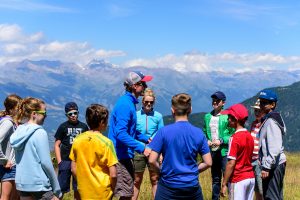
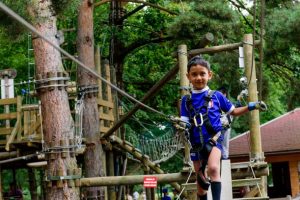
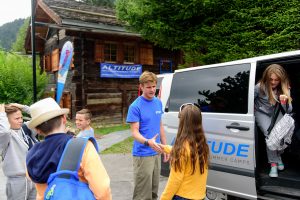
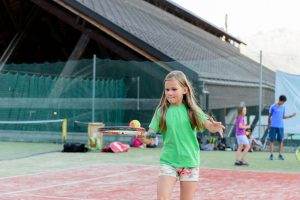
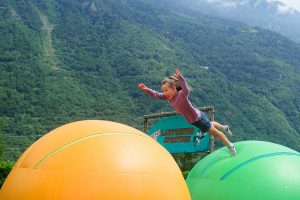
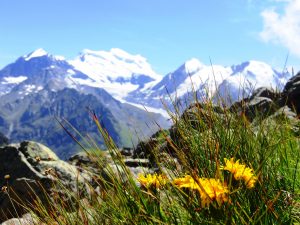
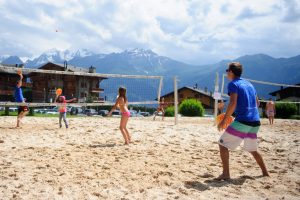
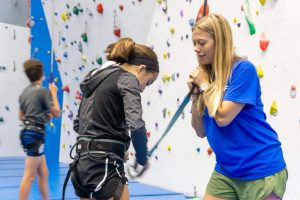
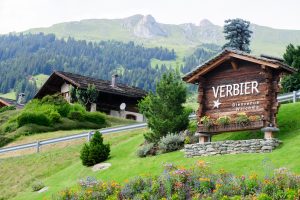
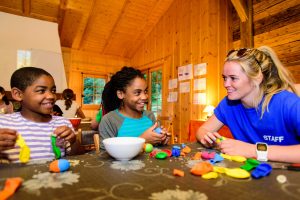
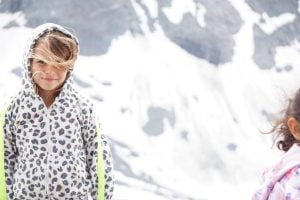
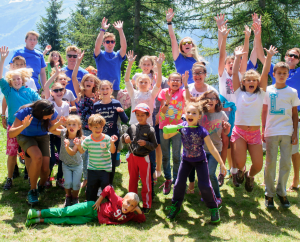
 What to look for:
What to look for: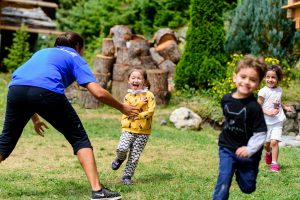 What to look for:
What to look for: